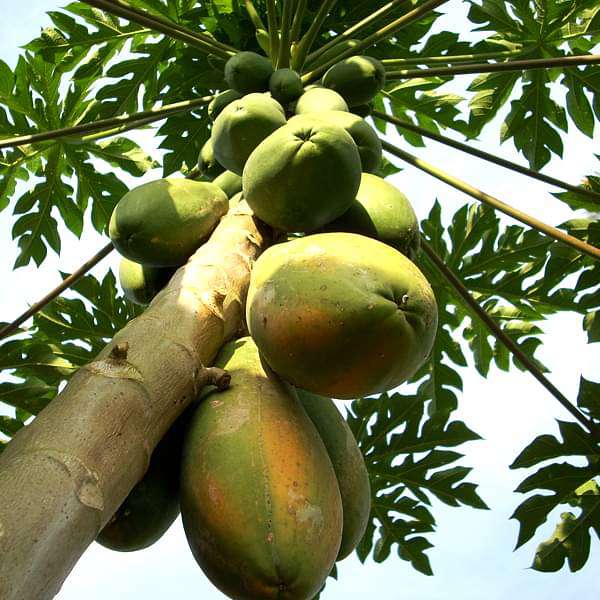
Papaya, Papita ( Grown through seeds ) - Plant
(MRP Inclusive of all taxes)
- Shipping ₹79 for entire order
- Country of origin: India

(MRP Inclusive of all taxes)
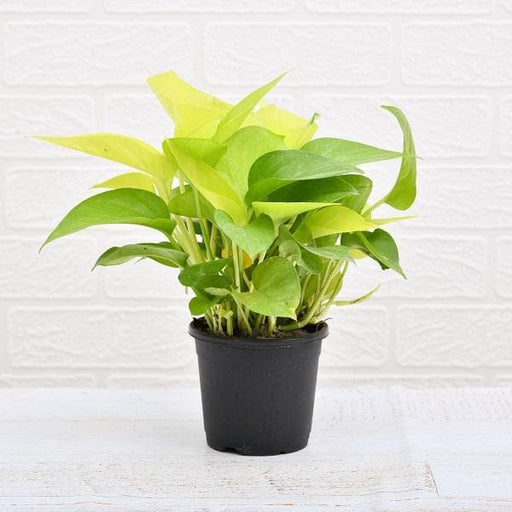 Save 29%
Save 29%
Air Purifier Money Plant with Pot The Air Purifier Money Plant, also known as Pothos or Epipremnum aureum, is a stunning indoor plant that...
View full details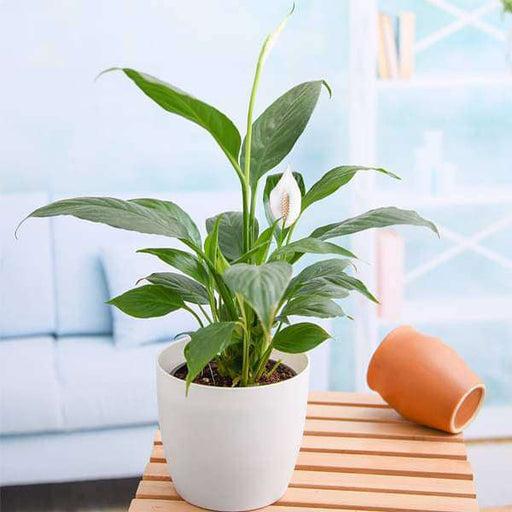
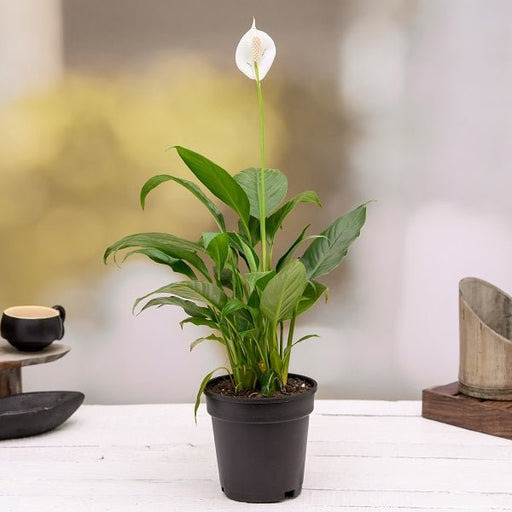 Save up to 15%
Save up to 15%
Peace Lily, Spathiphyllum - Plant The Peace Lily, scientifically known as Spathiphyllum, is a stunning houseplant celebrated for its elegant white...
View full details
 Save 25%
Save 25%
Jasminum sambac, Mogra, Arabian Jasmine - Plant Jasminum sambac, commonly known as Mogra or Arabian Jasmine, is a fragrant flowering plant...
View full details
 Save 18%
Save 18%
Combo Constituents Includes the Parijat Tree (Night-Flowering Jasmine), a culturally significant plant with fragrant flowers. Description The Pari...
View full details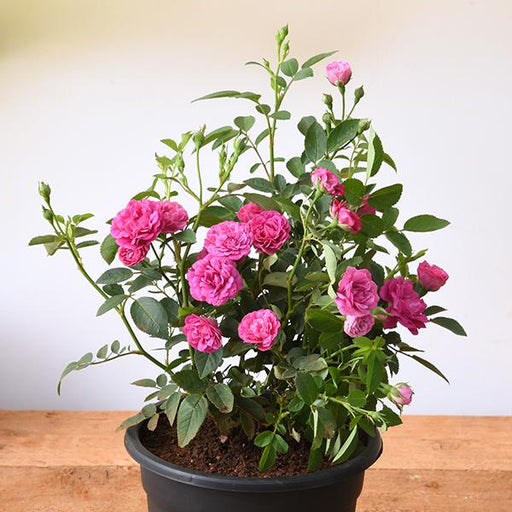
 Save 25%
Save 25%
Miniature Rose, Button Rose (Any Color) - Plant The Miniature Rose, also known as the Button Rose, is a charming and compact flowering plant that ...
View full details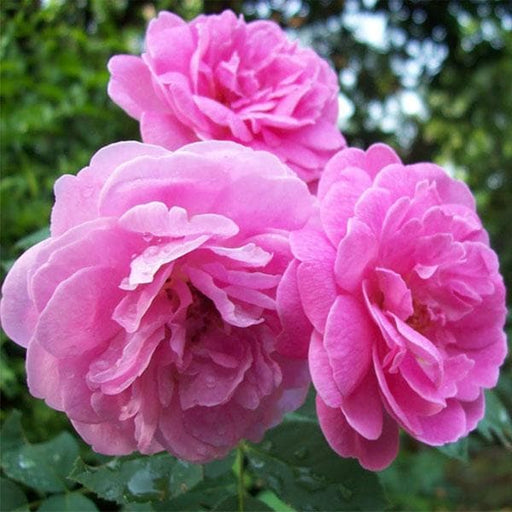 Save 25%
Save 25%
Damascus Rose, Scented Rose (Any Color) - Plant The Damascus Rose, also known as Rosa damascena, is a timeless symbol of beauty and romanc...
View full details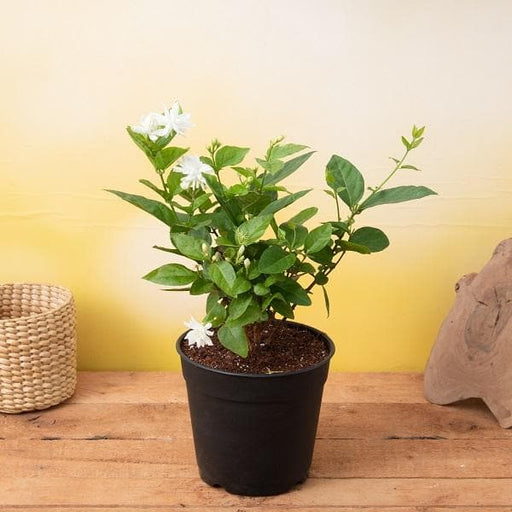
 Save 17%
Save 17%
Beautiful Fragrant Mogra, Arabian Jasmine Plant with Pot The Beautiful Fragrant Mogra, also known as Arabian Jasmine (Jasminum sambac), is...
View full details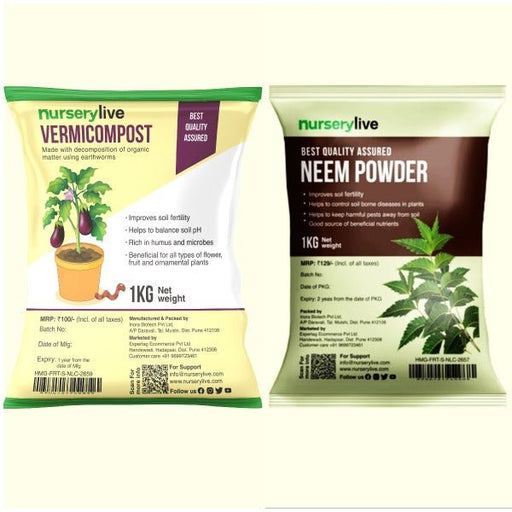 Save 15%
Save 15%
Pack of Vermicompost and Neem Cake for House Plants Transform your indoor garden with our premium Pack of Vermicompost and Neem Cake, spec...
View full details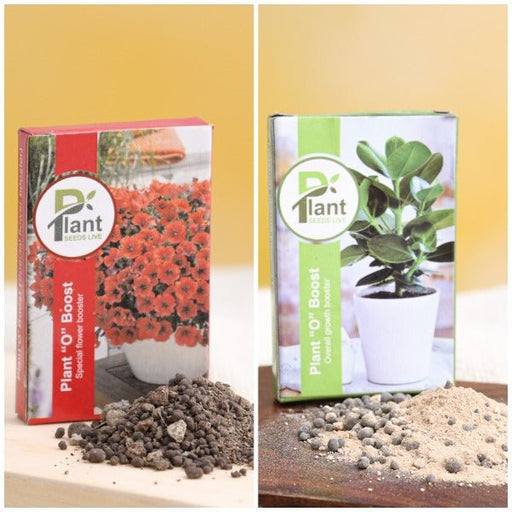
Pack of Plant Growth and Flower Boosters Unlock the full potential of your garden with our Pack of Plant Growth and Flower Boosters! This ...
View full details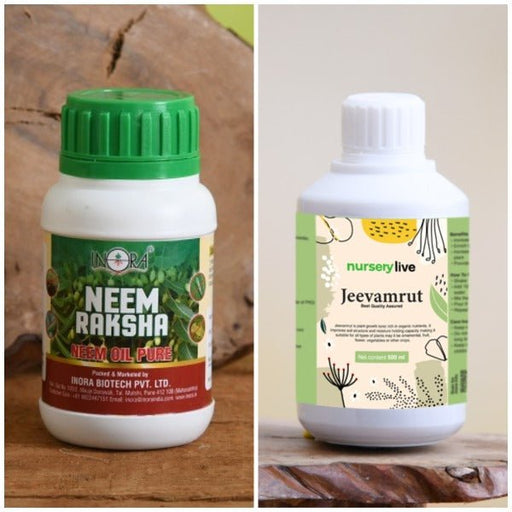 Save 38%
Save 38%
Combo of Jeevamrut and Neem Raksha for Easy Growth and Protection of Houseplants Transform your indoor garden with our exclusive combo of ...
View full details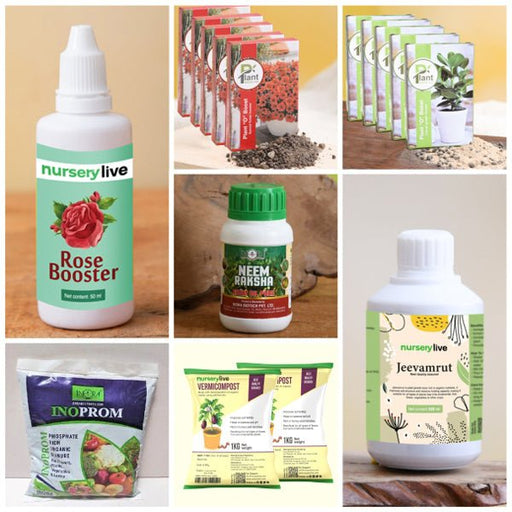 Save 22%
Save 22%
Plant Nutrients Kit (Pack of 16) for a Healthy Garden Transform your garden into a lush paradise with our Plant Nutrients Kit, featuring 1...
View full details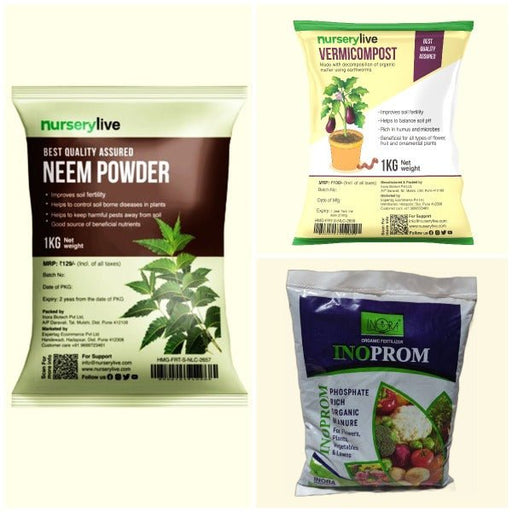 Save 16%
Save 16%
Combo of Top Plant Fertilizers Elevate your gardening game with our exclusive Combo of Top Plant Fertilizers, featuring two bags of premiu...
View full details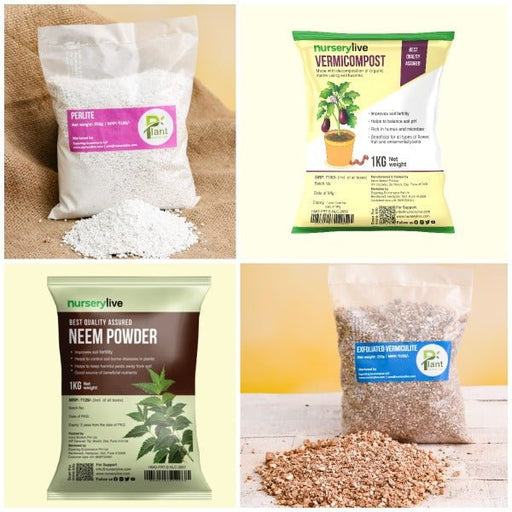 Save 24%
Save 24%
Pack of 4 Additives to Make Soil Healthy and Nutrient Rich Transform your garden into a thriving ecosystem with our Pack of 4 Additives de...
View full details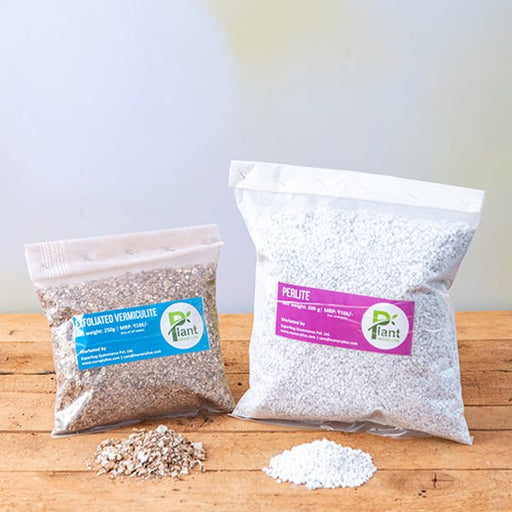 Save 30%
Save 30%
Transform your gardening experience with our premium Combo of Perlite and Vermiculite. This unique blend is designed to enhance soil aeration and ...
View full details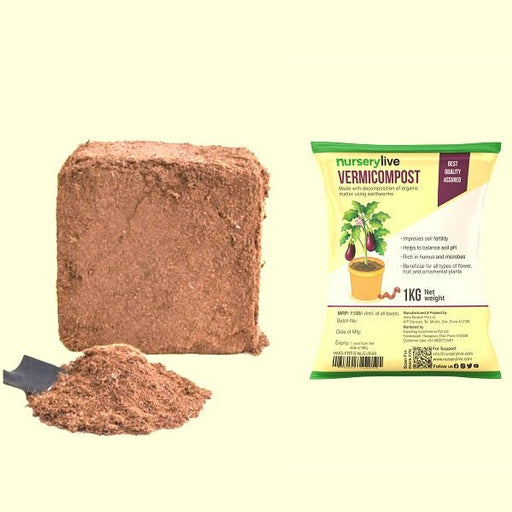 Save 27%
Save 27%
Combo of 2 Vermicompost and Cocopeat - Enrich Your Soil Naturally! Transform your garden into a thriving ecosystem with our Combo of 2 Ver...
View full details
 Save 35%
Save 35%
Best 6 Plants for Perfect Indoor Garden Transform your living space into a lush oasis with our curated collection of the Best 6 Plants for a...
View full details
 Save up to 50%
Save up to 50%
Mini Succulent Garden Pack Transform your space with our Mini Succulent Garden Pack, featuring a delightful collection of 4 any variety beautiful s...
View full details
 Save 30%
Save 30%
5 Best Fragrant Plants Transform your garden or indoor space into a fragrant paradise with our curated selection of the 5 Best Fragrant Plants. Th...
View full details
 Save 24%
Save 24%
Set of 2 Bonsai Looking Grafted Adeniums Transform your indoor or outdoor space with our exquisite Set of 2 Bonsai Looking Grafted Adenium...
View full details Save 45%
Save 45%
Top 4 Die Hard Succulents Pack Transform your indoor or outdoor space with our Top 4 Die Hard Succulents Pack, featuring a curated selecti...
View full details
 Save 30%
Save 30%
5 Best Indoor Plants Pack Transform your living space into a lush oasis with our '5 Best Indoor Plants Pack.' This carefully curated collection fe...
View full details
 Save 25%
Save 25%
Set of 4 Evergreen Air Purifier Plant Pack Transform your indoor space into a lush, green oasis with our Set of 4 Evergreen Air Purifier Pla...
View full details| SrNo | Item Name |
|---|---|
| 1 | Papaya, Papita ( Grown through seeds ) - Plant |
The Papaya plant, scientifically known as Carica papaya, is a tropical fruit-bearing plant renowned for its sweet, juicy fruit and vibrant foliage. Grown from seeds, this plant thrives in warm climates and is a staple in many gardens worldwide. With its fast growth rate and ability to produce fruit within a year, the Papaya is not only a delicious addition to your diet but also an attractive ornamental plant.
Papaya is celebrated for its numerous health benefits, including high levels of vitamins A, C, and E, as well as digestive enzymes like papain. These nutrients contribute to improved digestion, skin health, and immune support. Additionally, the plant's ability to grow in various soil types makes it a versatile choice for gardeners.
This Papaya plant is unique due to its ability to produce fruit year-round in optimal conditions. Its large, lobed leaves not only provide shade but also attract pollinators, enhancing biodiversity in your garden. Furthermore, the plant's rapid growth and minimal care requirements make it an ideal choice for both novice and experienced gardeners.
Papaya plants contribute positively to the environment by improving soil health and providing habitat for various pollinators. Their fast growth and ability to thrive in poor soils make them an excellent choice for sustainable gardening practices.
These tiny powerhouses are the unsung heroes of the papaya world. Packed with nutrients, they’re not just for planting; they can also spice up your smoothie game. Who knew that a seed could be so versatile? Just remember, while they’re edible, they have a peppery kick that might surprise your taste buds.
Growing a papaya tree is like raising a child—lots of love, attention, and the occasional pruning. These tropical beauties thrive in well-drained soil and need plenty of sunlight. Water them like you’re giving them a spa day, but don’t drown them. A little TLC goes a long way in ensuring your papaya tree grows tall and fruitful.
Papaya isn’t just a pretty face in the fruit aisle; it’s a nutritional powerhouse! Rich in vitamins A, C, and E, it’s like a multivitamin in fruit form. Plus, it’s great for digestion, making it the perfect post-meal treat. Who knew being healthy could taste so good?
Starting your papaya journey from seeds is like embarking on a culinary adventure. It’s simple, fun, and you get to witness the magic of nature. Just plant those seeds, give them some warmth, and watch as they sprout into a tropical delight. Patience is key, but the reward is oh-so-sweet!
Planting papaya is not rocket science, but it does require a bit of finesse. Choose a sunny spot, ensure good drainage, and don’t forget to space them out like they’re at a party—no one likes to be crowded! With the right conditions, your papaya plants will be the life of the garden.
Harvesting papayas is like a treasure hunt, but instead of gold, you find delicious fruit! Wait until they turn a lovely yellow-orange, then gently twist them off the tree. Timing is everything; pick too early, and you’ll be left with a sour surprise.
Every garden has its villains, and papaya trees are no exception. Watch out for pesky pests like aphids and fruit flies. They may be small, but they can wreak havoc on your precious papayas. A little vigilance and some organic pest control can keep your garden drama-free.
Once you’ve grown your papayas, it’s time to get creative in the kitchen! From refreshing salads to tropical smoothies, the possibilities are endless. You can even try your hand at papaya salsa—your taste buds will thank you. Who knew that growing a fruit could lead to such culinary adventures?
Papaya is like the superhero of fruits, boasting a low-calorie count while being high in fiber and antioxidants. It’s a guilt-free indulgence that supports your immune system and keeps your skin glowing. Eating papaya is like giving your body a high-five!
Not all papayas are created equal! From the sweet and juicy Hawaiian variety to the larger, more robust Mexican papaya, each type has its own unique flavor profile. Exploring these varieties is like going on a fruit-tasting tour without leaving your backyard.
Want to boost your papaya’s growth? Consider companion planting! Pairing papayas with herbs like basil or marigold can deter pests and enhance growth. It’s like throwing a garden party where everyone benefits—talk about a win-win!
Once you’ve harvested your papayas, proper storage is key to keeping them fresh. Store them at room temperature until ripe, then pop them in the fridge to extend their shelf life. Just don’t let them sit too long; nobody likes a mushy papaya!
Growing papaya from seeds is like starting a tropical party! First, soak the seeds overnight, then plant them in well-draining soil. Keep them warm and watered, and soon you'll have a mini papaya jungle. Just remember, they love sunshine more than a sunbather on a beach!
Patience, my friend! Papaya seeds usually take about 2 to 3 weeks to germinate. It’s like waiting for your favorite show to drop a new season. Keep the soil moist and warm, and soon you’ll see those little green sprouts popping up, ready to steal the spotlight!
Papaya plants are picky eaters when it comes to soil. They prefer well-draining, sandy loam with a pH of 6 to 6.5. Think of it as their five-star dining experience! Add some organic compost for extra nutrients, and watch them thrive like they’re on a tropical vacation!
Papaya plants are sun worshippers! They need at least 6 to 8 hours of direct sunlight daily. If they could wear sunglasses, they would! Place them in a sunny spot, and they’ll reward you with delicious fruit faster than you can say “tropical delight!”
Watering papaya plants is like giving them a refreshing drink after a workout. They love consistent moisture but hate soggy feet! Water them deeply once a week, or more often in hot weather. Just remember, too much water is like a bad date—nobody enjoys it!
Get ready for the fruit fiesta! Papaya plants typically start producing fruit within 6 to 12 months after planting. It’s like waiting for a surprise party—exciting and worth the wait! Just ensure they’re well-cared for, and soon you’ll be enjoying your homegrown papaya treats!
Ripe papayas are like the life of the party—vibrant and inviting! Look for a yellowish skin with a slight give when you press it. If it’s still green, it’s not ready to mingle. Once ripe, enjoy it fresh or in smoothies, and let the flavor dance on your taste buds!
Absolutely! Papaya plants can be the life of your indoor garden. Just ensure they have enough sunlight—at least 6 hours a day—and a spacious pot. They might not grow as tall as their outdoor cousins, but they’ll still bring a tropical vibe to your living room!
Papaya plants can attract some uninvited guests like aphids and spider mites. Keep an eye out for these little party crashers! Regularly inspect your plants and use insecticidal soap or neem oil to keep them in check. After all, no one likes a pest at their tropical bash!
Yes, you can! Growing papaya from store-bought fruit is like recycling a party invitation. Just scoop out the seeds, rinse them, and let them dry. Then, plant them in soil, and you might just end up with your very own papaya tree, ready to produce more fruity goodness!
Papaya plants are tropical divas that thrive in warm temperatures between 70°F to 90°F (21°C to 32°C). They’re not fans of frost, so if you live in a chilly area, consider growing them in pots to bring them indoors during cold snaps. Keep them cozy, and they’ll reward you with sweet fruit!
Fertilizing papaya plants is like giving them a gourmet meal! Use a balanced fertilizer every 4 to 6 weeks during the growing season. Look for one high in nitrogen to promote leafy growth. Just don’t overdo it—too much fertilizer can lead to a party gone wrong!